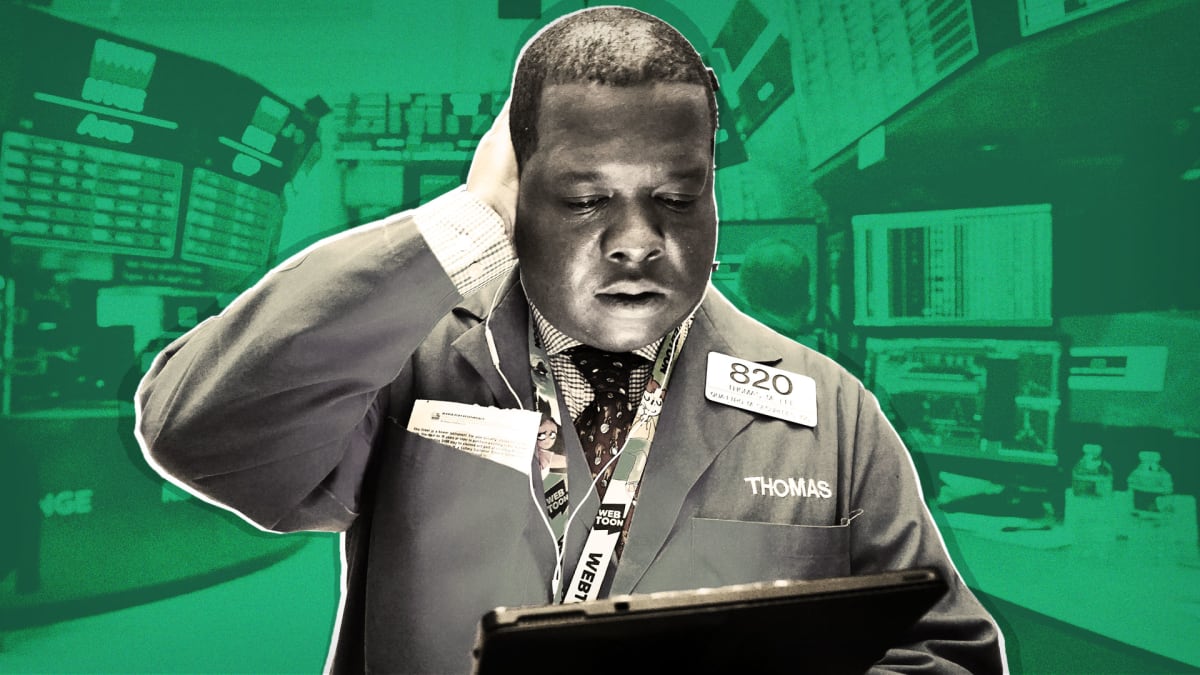
Stocks ended higher Friday, with investors reacted to a mixed October employment report and a four-day losing streak on Wall Street.
The U.S. economy added 261,000 new jobs last month, the Labor Department said, with the September total revised 56,000 higher to 319,000. The BLS noted that hourly wages were up 0.4%, the biggest monthly gain since July and topping Street forecast.
However, on a year-on-year basis, wages were up 4.7%, slowing from last month's 5% pace and suggesting further moderation over the final months of 2022 and beyond.
"If labor growth remains strong and earnings growth slows, it’ll be a win-win for investors since there will be less pressure on the Fed to raise rates," said Peter Essele, head of portfolio management at Commonwealth Financial Network in Waltham, Massachusetts. "The result could be a soft landing in the economy as opposed to a hard one, which means today’s equity markets are probably closer to a bottom than many expected."
A pullback in hiring, while challenging for broader economic growth, remains a key plank in Federal Reserve Chairman Jerome Powell's inflation fight, where average hourly wages are growing at a rate of 5% a year - even with more than 10.7 million unfilled positions in the job market as of the end of September.
"The broader picture is of an overheated labor market where demand substantially exceeds supply," Powell told reporters in Washington earlier this week. "We keep looking for signs that sort of the beginning of a gradual softening is happening and maybe that's there, but it's not obvious to me because wages aren't coming down, they're just moving sideways at an elevated level."
The CME Group's FedWatch remains split on the chances of a 75 basis point rate hike in December, with the odds on a smaller 50 basis point move pegged at 47.2%.
Benchmark 10-year Treasury note yields were around 2 basis points higher at 4.173% while the U.S. dollar index, which tracks the greenback against a basket of its global peers, was marked 1.93% lower at 110.75.
On Wall Street, the S&P 500 finished up 1.36%, while the Dow Jones Industrial Average gained 401 points, or 1.26%, to 32,403. The tech-focused Nasdaq advanced 1.28%.
For the week, the S&P was down about 4.5%, the Dow was off 2.5%, the Nasdaq lost 6.1%.
In terms of individual stocks, Starbucks (SBUX) shares jumped 8.5% after the world's largest coffee chain posted stronger-than-expected fourth quarter earnings Thursday as solid U.S. sales offset a prolonged slump in China traffic.
PayPal (PYPL) shares slumped 1.8% after the online payments group forecast softer-than-expected holiday quarter revenues that marred a solid September quarter update.
Global stocks, meanwhile, are riding firm early gains Friday following reports that suggest China is preparing to ease one of its crucial Covid restrictions -- penalties applied to airlines for brining in infected passengers -- and that U.S. auditors had completed a review of China-based companies listed on American markets.
The reports provided a firm lift to stocks in Asia overnight, with Hong Kong's Heng Seng index rising 5.4% to cap its best weekly gain in more than ten years, and the region-wide MSCI ex-Japan index rising 2.31% heading into the close of trading.
Oil prices were also on the move Friday, with WTI crude futures for December delivery rising $4.99 to $92.57 per barrel, largely on demand bets linked to reports of easing Covid restrictions in China, the world's largest energy importer.
In Europe, Britain's FTSE 100 was marked 1.94% higher as the pound held near a two week low of 1.1271 following a warning from the Bank of England, which lifted its benchmark lending rate by 75 basis points to 3% yesterday -- that the country is facing a deep and prolonged recession. The region-wide Stoxx 600 was marked 2.22% higher in early Frankfurt trading.







